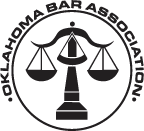On March 18, 2020 the Families First Coronavirus Response Act (FFCRA) was signed into law in response to the coronavirus pandemic. The FFCRA mandatory paid leave requirements expired on December 31, 2020, but the tax credits continued for employers who chose to voluntarily offer the leave through March 31, 2021.
The American Rescue Plan Act, signed into law on March 11, 2021, provided for a third round of Economic Impact Payments, expanded the Child Tax Credit, provided emergency funding for state, local, territorial and Tribal governments, created the Home Owner Assistance Fund, and the list goes on. The American Rescue Plan Act also extended and expanded the Families First Coronavirus Response Act.
The FFCRA still remains optional to eligible employers, those with fewer than 500 employees, but expands the program through September 30, 2021. This means that any eligible employer who pays the FFCRA paid leave benefits will continue to receive dollar for dollar tax credits.
Changes to Emergency Paid Sick Leave Act
The American Rescue Plan reset employees’ FFCRA sick leave rights on April 1, 2021. Therefore, if an employee had previously exhausted their 10 day/80 hour limit of Paid Sick Leave under the FFCRA, as of April 1, the employee now has an additional 10 day/80 hours for use. Any time previously unused from Paid Sick Leave under the FFCRA does not carry over after April 1.
As of April 1, 2021, these are the following reasons an employee can be eligible for paid leave under the FFCRA. This list was expanded on April 1 to promote COVID-19 vaccination and testing.
- The employee is unable to work because they are obtaining a COVID-19 vaccine.
- The employee is unable to work because they are recovering from any illness, injury or condition related to receiving the immunization.
- The employee is seeking or waiting for the results of a COVID-19 diagnostic test or a medical diagnosis because they have been exposed to COVID-19 or because the employer requested the test or diagnosis.
- The employee is subject to a Federal, State, or local quarantine or isolation order related to COVID-19.
- The employee has been advised by a health care provider to self-quarantine due to concerns related to COVID-19.
- The employee is experiencing symptoms of COVID-19 and seeking a medical diagnosis.
- The employee is caring for an individual who is subject to a quarantine order as described above.
- The employee is caring for a child if the school or place of care has been closed, or the child care provider of the child is unavailable, due to COVID-19 precautions.
- The employee is experiencing any other substantially similar condition specified by the Secretary of Health and Human Services in consultation with the Secretary of the Treasury and the Secretary of Labor.
Changes to Emergency Family and Medical Leave Expansion Act
One of the major changes that the American Rescue Plan made to the Emergency Family and Medical Leave Expansion Act (EFMLA) is that the first two weeks of EFMLA can now be paid. This would allow for a full 12 weeks of paid EFMLA as opposed to the previous 10 weeks of paid leave as created under the FFCRA. With the increase of the paid leave offered under the EMFLA, the maximum amount of tax credit also increases from $10,000 to $12,000 per employee. This change also took effect on April 1, 2021.
Additionally, an employee whose employer is offering EFMLA, can now take EFMLA for any of the qualifying reasons listed above under the Emergency Paid Sick Leave. Ultimately, this allows for employees to potentially take 14 weeks of paid leave under the Paid Sick Leave (2 weeks) and EFMLA (12 weeks) in response to one of the qualifying reasons of being unable to work due to the COVID-19 pandemic.
Employers are now faced with the choice of whether to provide FFCRA type leave for their employees. Employers should note that if they decide to offer this leave, they must do so in a non-discriminatory way or they are not eligible to receive the tax credit benefits.
If you have any questions about the expansion and extension of the Families First Coronavirus Response Act, please contact Chuck Dunlay, Ryan Denk, or Greg Goheen.
Disclaimer and warning: This information was published by McAnany, Van Cleave & Phillips, P.A., and is to be used only for general informational purposes and should not be construed as legal advice or legal opinion on any specific facts or circumstances. This is not inclusive of all exceptions and requirements which may apply to any individual claim. It is imperative to promptly obtain legal advice to determine the rights, obligations and options of a specific situation.







